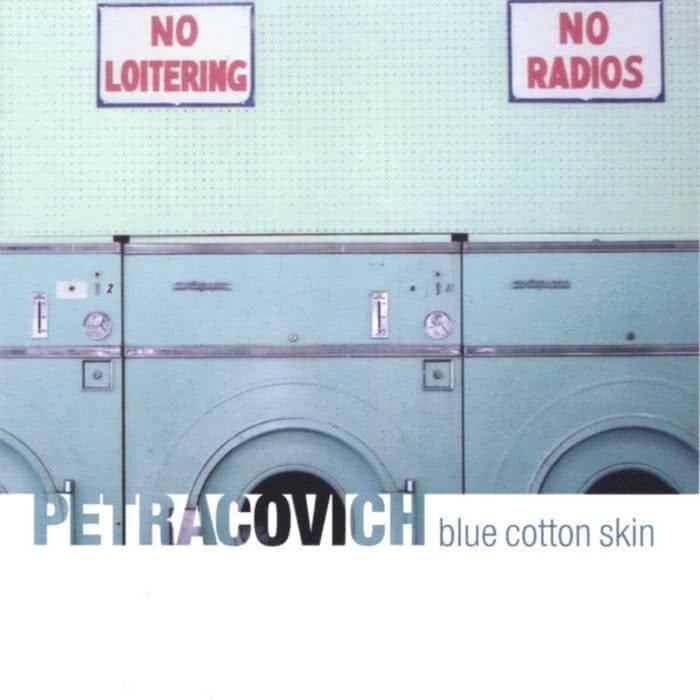Blue Cotton Skin by Petracovich (Review)

What do you get when a folk singer decides to skip the coffeehouse circuit and instead delve into the worlds of trip-hop and electronica? On the surface, it sounds like a recipe for disaster, or at best, an uneven record. That’s what makes Blue Cotton Skin such a pleasant surprise. Throughout the album’s 9 tracks, Jessica Peters (who records as Petracovich) balances her electronic and acoustic leanings with considerable skill, and makes me wish I received more records like this.
Peters’ electronic experiments are most obvious on the album’s opening tracks. Peters’ voice is soft and seductive as it coos over “Nighttime“ ‘s big beats, revolving atmospheres, and haunting keys (I almost wonder if Halou didn’t have a hand in the song’s production). “Fall From Trees” takes a subtler approach; Peters’ voice is almost tentative while a faint guitar melody floats just below the song’s soft washes of sound. These two tracks alone would be worth buying the album, and firmly establishes Peters with the likes of Heather Duby and Beth Orton.
While the opening tracks might seem like the album’s most experimental moments, the rest of the songs are no slouch either. Though the electronic sounds aren’t nearly as obvious on “Bird’s In Flight” or “Driving Home,” that’s no mark against their depth and quality. “Water House” treads a bit too close in style to Heather Duby’s Post To Wire. Nonetheless, the track is still a nice display of Peters’ skill at playing with layers of vocals and rhythms.
On “Company,” Peters strips things down a bit and delivers a poignant piano-driven ballad. Peters’ voice might be at its most vulnerable here, sounding so fragile as to almost be swallowed up by the silences between the sparse keys and eerie electronics.
For additional atmosphere, two ambient tracks (“Coyote and the Moon” and “Rosebud”) also appear, both short and lovely in their own right. “Coyote and the Moon” anchors swirling etherea with a piano melody that’s barely more tangible; the track sounds like Peters’ attempt to write an epilogue for Yoshimi’s battle. “Rosebud” is the darker and more mysterious of the two, with muted, twilight-inspired sounds forming out of “Company“ ‘s final moments.
The album closes in fine form with “Footsteps,” which finds Peters’ electronic and acoustic sides in perfect alignment. A playful piano melody and Peters’ multitracked cooing start things off. Glitchy musicboxes and sleepy atmospherics slowly join them and together they move towards the guitar-accented climax. Picture something Mum might compose if they finally decided to grow up and leave their sleepy dreamland and you’ll get the idea.
Initially, I leaned towards the album’s more electronic moments such as “Nighttime.” But during repeated listens, I quickly warmed up to the rest of the album. I found myself detecting the subtle touches that Peters and the other musicians worked in so nicely, the little electronic bits and pieces that only reveal themselves when they want to. This only happens when an artist can combine those elements to the point where you can’t tell where one ends and the other begins. On Blue Cotton Skin, Peters makes it sound all too easy.